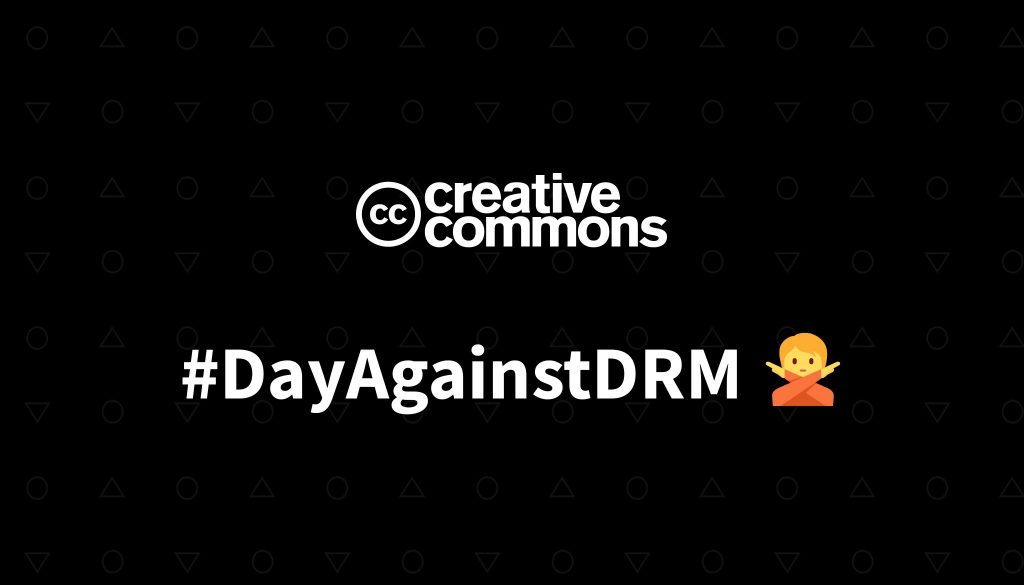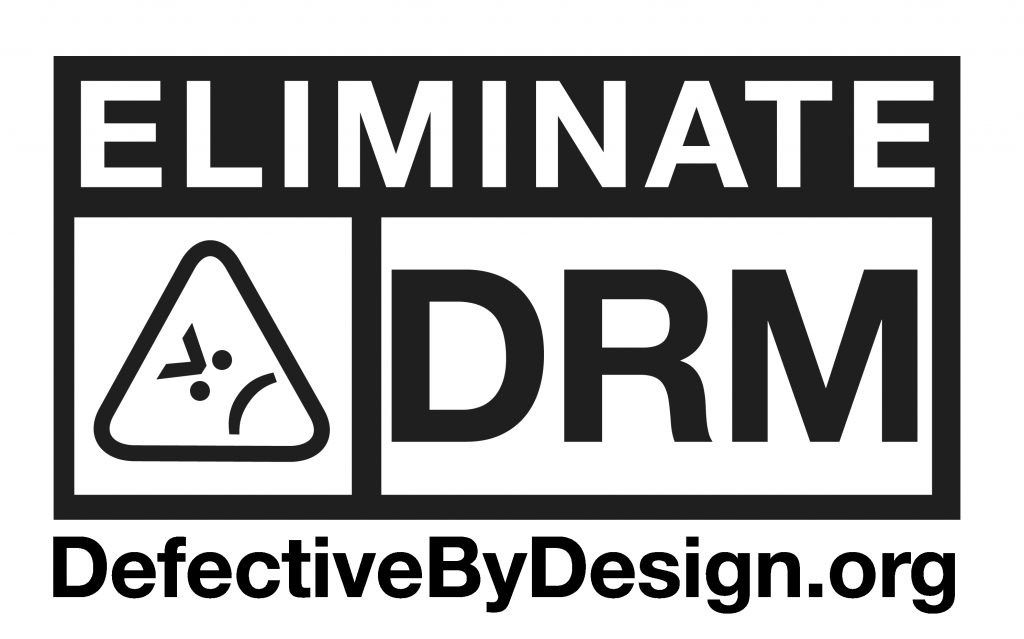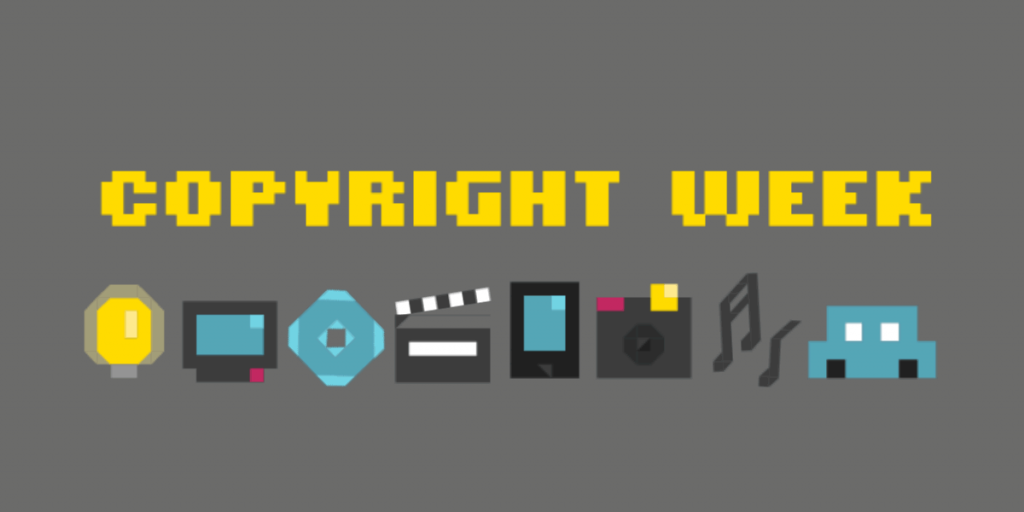There are too few nonprofit organizations like CC fighting for the commons – support our vital leadership with an end of year contribution. Donate today!
Tag: DRM
We’re Against Digital Rights Management. Here’s Why.
by Brigitte Vézina Copyright
We at Creative Commons (CC) have long disagreed with the use of digital rights management (DRM) and technological protection measures (TPMs) in the open environment. We believe that DRM and TPMs should not be used to control, limit, prevent or otherwise affect activities and uses allowed under CC licenses’ terms. Plainly, DRM and TPMs are…
Terrible, Horrible, No Good, Very Bad DRM
by Timothy Vollmer Copyright
Today is the annual #DayAgainstDRM, a global campaign to raise awareness about the harms of digital rights management (DRM). DRM consists of access control technologies or restrictive licensing agreements that attempt to restrict the use, modification, and distribution of legally-acquired works. There are serious problems with attaching DRM to creative works: not only does it…
We Bought It, We Own It, We Fix It: Building Open Policies for Digital Public Goods
by Timothy Vollmer Copyright
We’re taking part in Copyright Week, a series of actions and discussions supporting key principles that should guide copyright policy. Every day this week, various groups are taking on different elements of the law, and addressing what’s at stake, and what we need to do to make sure that copyright promotes creativity and innovation. Today’s…
Join CC in supporting the International Day Against DRM
by Timothy Vollmer Open Access
Image credit Brendan Mruk/Matt Lee, CC BY-SA Today is the International Day Against DRM, a global campaign to raise awareness about the harms of restricting access to legally-acquired content using digital restrictions management (DRM). DRM consists of access control technologies or restrictive licensing agreements that attempt to restrict the use, modification, and distribution of copyright-protected…
Day Against DRM 2012
by Jane Park UncategorizedToday is Day Against DRM. If you don’t already, you should know that DRM stands for Digital Rights Management (or probably more accurately, Digital Restrictions Management), and that we have blogged about this day before for good reasons, including, DRM causes problems regarding fair use, lack of competition, privacy and security breaches, forced obsolescence, and…
DRM (a day against)
by mike UncategorizedToday is a good day to learn about Digital Rights Management, or more accurately Digital Restrictions Management: Selection of blog posts from Day Against DRM 2011 Posts on the Creative Commons blog about DRM, going back to 2004. DRM article on English Wikipedia Although DRM seems to no longer be the red hot issue it…
Rights Expression vs. Rights Enforcement: clarifying the Associated Press story
by ben About CCThe Associated Press wants to track reuse of their content through a “news registry.” This registry “will employ a microformat for news developed by AP”: The microformat will essentially encapsulate AP and member content in an informational “wrapper” that includes a digital permissions framework that lets publishers specify how their content is to be used…
Cory Doctorow Releases "Content: Selected Essays on Technology, Creativity, Copyright, and the Future of the Future"
by cameron Open CultureCC evangelist and acclaimed author Cory Doctorow announced today the release of his new book, Content: Selected Essays on Technology, Creativity, Copyright, and the Future of the Future. Content is exactly what it claims to be – 28 essays on “everything from copyright and DRM to the layout of phone-keypads, the fallacy of the semantic…
Zombie DRM
by mike UncategorizedI hate to beat a dead horse, but the horse’s promoters provide a convenient excuse when they claim the dead horse is making a comeback. The horse in question of course is DRM (emphasis added): “(Recently) I made a list of the 22 ways to sell music, and 20 of them still require DRM,” said…
Is it possible to design non-defective DRM?
by mike UncategorizedDRM (Digital Rights Management, pejoratively known as Digital Restrictions Management) is said to be defective by design — making digital devices and content more annoying, less secure, less compatible, and generally less useful, and especially where protected by recent legislation, in conflict with free speech. If this dysfunction is not included by design, it is…